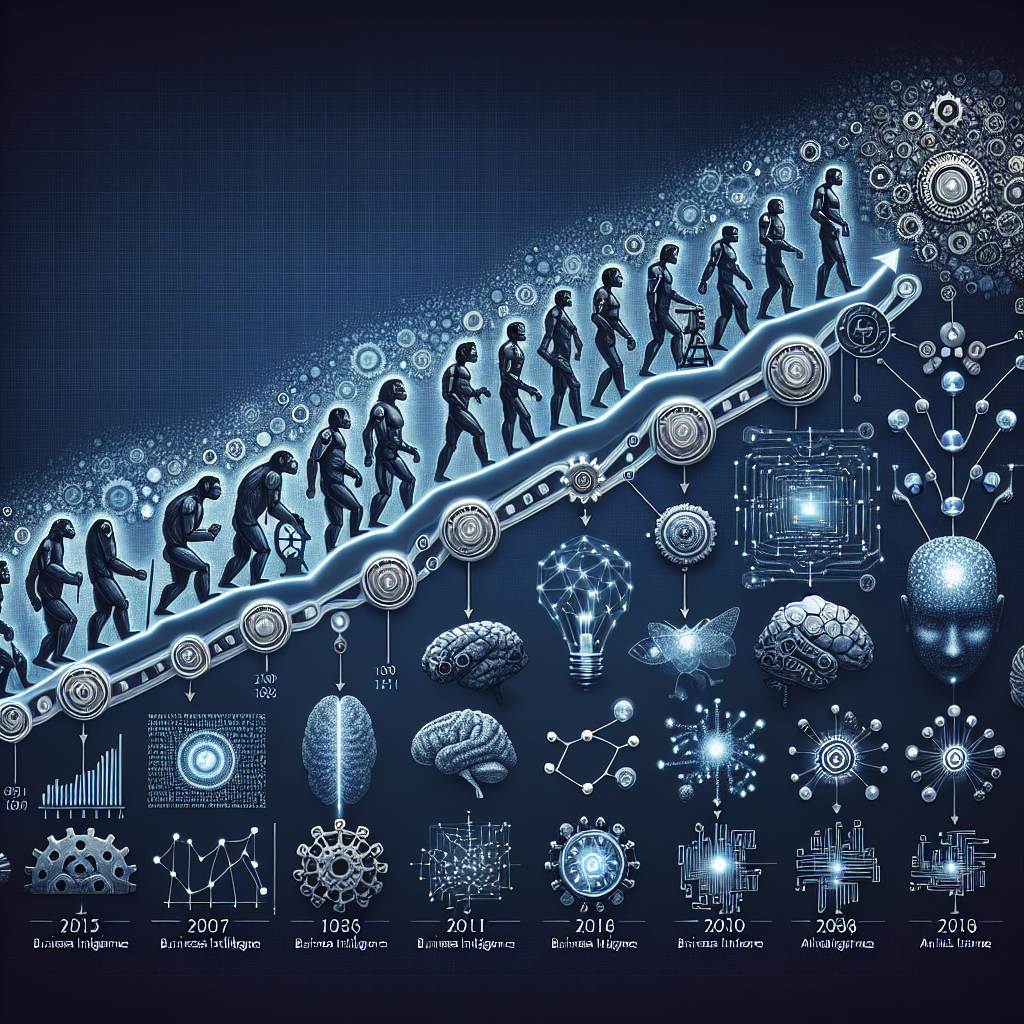The Evolution of AI in Business Intelligence
In recent years, artificial intelligence (AI) has become a game-changer in the field of business intelligence. AI technologies are transforming the way companies gather, analyze, and utilize data, providing them with valuable insights that can drive better decision-making and improve overall business performance.
AI in business intelligence refers to the use of AI technologies to collect, process, and analyze data to provide valuable insights and help businesses make informed decisions. These technologies include machine learning, natural language processing, and predictive analytics, among others.
The Evolution of AI in Business Intelligence
The evolution of AI in business intelligence can be traced back to the early 2000s when companies started using data mining and predictive analytics to gain insights from their data. However, these early AI technologies had limitations in terms of scalability and accuracy.
In the mid-2010s, the emergence of machine learning algorithms and deep learning techniques revolutionized the field of AI in business intelligence. These technologies enabled companies to analyze vast amounts of data in real-time and identify patterns and trends that were previously impossible to detect.
Today, AI-powered business intelligence platforms are being used by companies across various industries to gain a competitive edge and drive innovation. These platforms can help businesses automate data analysis, generate insights, and make data-driven decisions faster and more accurately.
Benefits of AI in Business Intelligence
There are several benefits of using AI in business intelligence, including:
1. Improved Decision-Making: AI-powered business intelligence platforms can analyze large volumes of data and provide valuable insights that can help companies make more informed decisions.
2. Increased Efficiency: AI technologies can automate data analysis processes, saving time and resources for businesses.
3. Enhanced Customer Experience: AI-powered business intelligence platforms can analyze customer data to personalize marketing campaigns and improve customer service.
4. Competitive Advantage: Companies that leverage AI in business intelligence have a competitive edge over their competitors by making data-driven decisions and staying ahead of market trends.
FAQs
Q: What is the difference between AI and business intelligence?
A: AI refers to the use of technologies that enable machines to perform tasks that typically require human intelligence, such as speech recognition and decision-making. Business intelligence, on the other hand, refers to the use of data analysis tools and techniques to gain insights from data and make informed decisions.
Q: How can AI improve business intelligence?
A: AI technologies can improve business intelligence by automating data analysis processes, generating insights from large volumes of data, and helping companies make data-driven decisions faster and more accurately.
Q: What are some examples of AI technologies used in business intelligence?
A: Some examples of AI technologies used in business intelligence include machine learning algorithms, natural language processing, and predictive analytics.
Q: How can companies implement AI in business intelligence?
A: Companies can implement AI in business intelligence by investing in AI-powered business intelligence platforms, hiring data scientists and AI experts, and training employees on how to use AI technologies effectively.
In conclusion, the evolution of AI in business intelligence has transformed the way companies gather, analyze, and utilize data to make informed decisions and drive business growth. By leveraging AI technologies, companies can gain valuable insights, improve efficiency, and gain a competitive edge in today’s data-driven business landscape.

